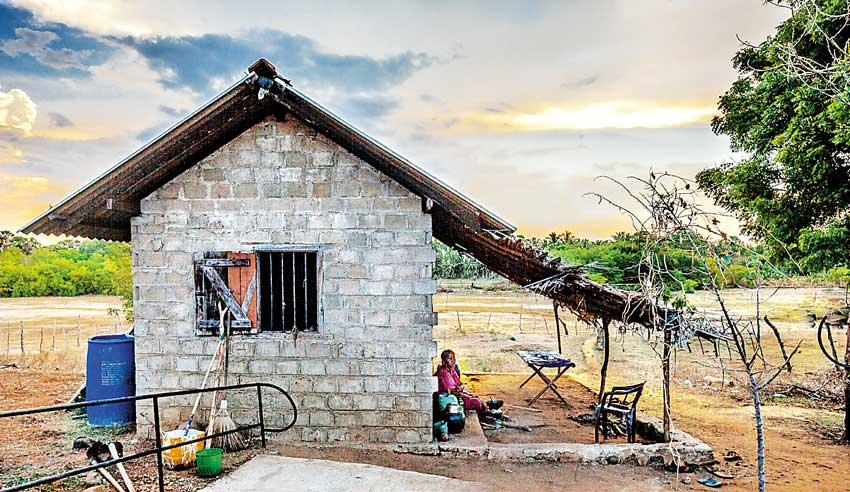Reply To:
Name - Reply Comment
Last Updated : 2024-04-25 22:46:00

Severe long-term effects of the COVID-19 pandemic could push an additional 207 million people into extreme poverty on top of the current pandemic trajectory, bringing the total to over 1 billion by 2030, according to United Nations Development Programme (UNDP) latest findings.
This is not a foregone conclusion: with a focused set of investments towards achieving the Sustainable Development Goals (SDGs), an additional 146 million people could be lifted out of extreme poverty compared to current COVID-19 trends.
The study, part of a long-standing partnership between UNDP and the Pardee Center for International Futures at the University of Denver, assesses the impact of different COVID-19 recovery scenarios on the SDGs, evaluating the multi dimensional effects of the pandemic over the next decade.
The ‘Baseline COVID’ scenario, based on current mortality rates and the most recent growth projections by the International Monetary Fund (IMF), would result in 44 million more people living in extreme poverty by 2030 compared to the development trajectory the world was on before the pandemic.
Under a ‘High Damage’ scenario, where the recovery is protracted, COVID-19 is likely to push an additional 207 million people into extreme poverty by 2030, and increase the female poverty headcount by an additional 102 million compared to that baseline, says the report.
The High Damage scenario anticipates that 80 percent of the COVID-induced economic crisis would persist in 10 years’ time due to loss in productivity, preventing a full recovery to the growth trajectory seen before the pandemic.
However, the study also finds that a focused set of SDG investments over the next decade in social protection/welfare programmes, governance, digitalisation, and a green economy could not only prevent the rise of extreme poverty, but actually exceed the development trajectory the world was on before the pandemic.
This ambitious, yet feasible ‘SDG Push’ scenario would lift an additional 146 million people out of extreme poverty, narrow the gender poverty gap, and reduce the female poverty headcount by 74 million, even taking into account the current impacts of the COVID-19 pandemic.
“As this new poverty research highlights, the COVID-19 pandemic is a tipping point, and the choices leaders take now could take the world in very different directions. We have an opportunity to invest in a decade of action that not only helps people to recover from COVID-19, but that re-sets the development path of people and planet towards a more fair, resilient and green future,” said UNDP Administrator Achim Steiner.
The concerted SDG interventions suggested by the study combine behavioral changes through nudges for both governments and citizens, such as improved effectiveness and efficiency in governance and changes in consumption patterns of food, energy and water.
The proposed interventions also focus on global collaboration on climate change,additional investments in COVID-19 recovery, and the need for improved broadband access and technology innovation.
The study also concludes that ‘SDG Push’ investments hold significant potential to boost human development in fragile and conflict-affected states, given that the majorityof the additional 146 million people who would be lifted from poverty live in such settings, including 40 million women and girls.
This publication is the first installation of a UNDP flagship report on the impact of COVID-19 on the SDGs. It focuses on the implications of the pandemic on poverty, education, health, nutrition and gender equality – also referred to asthe ‘People’ Goals in the 2030 Agenda.
In early 2021, subsequent publications will share new insights about impacts on other dimensions of the 2030 Agenda – with a focus on prosperity, peace and planet.

Add comment
Comments will be edited (grammar, spelling and slang) and authorized at the discretion of Daily Mirror online. The website also has the right not to publish selected comments.
Reply To:
Name - Reply Comment
US authorities are currently reviewing the manifest of every cargo aboard MV
On March 26, a couple arriving from Thailand was arrested with 88 live animal
According to villagers from Naula-Moragolla out of 105 families 80 can afford
Is the situation in Sri Lanka so grim that locals harbour hope that they coul